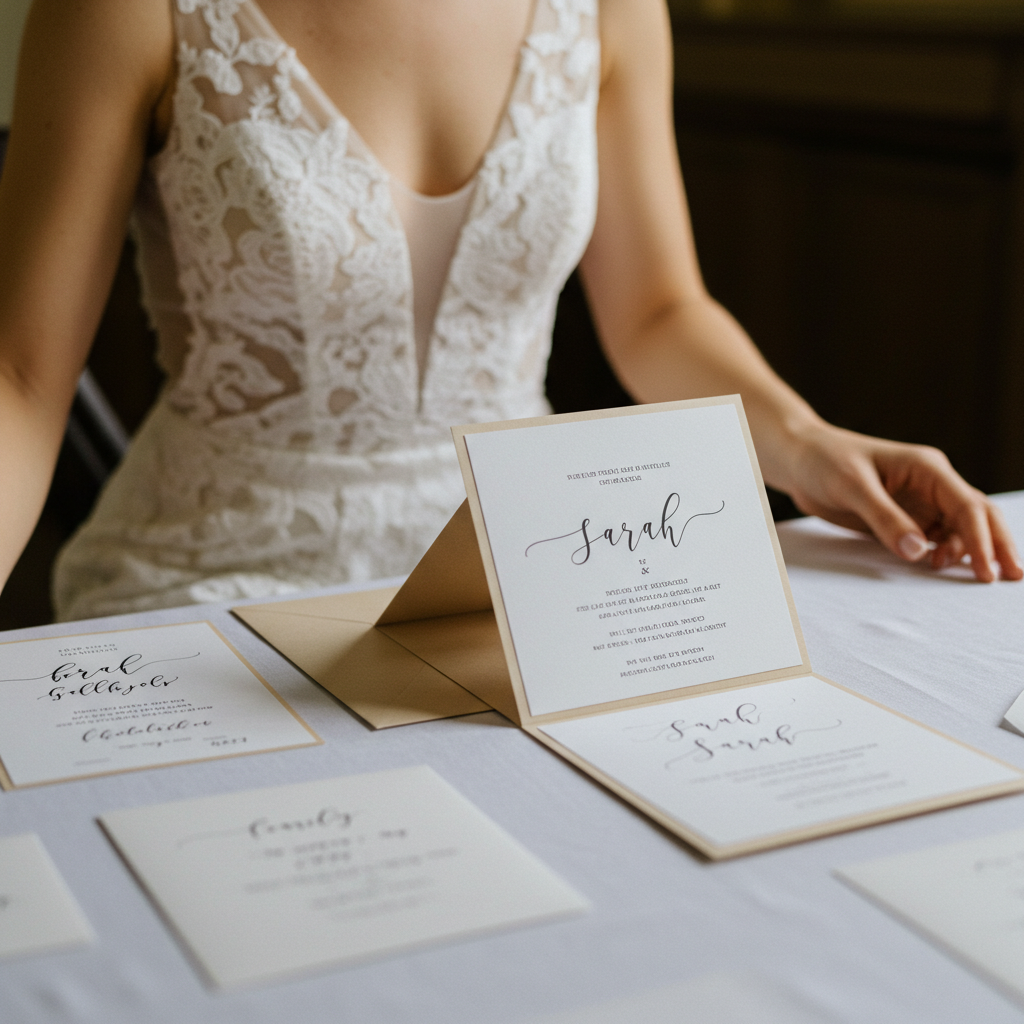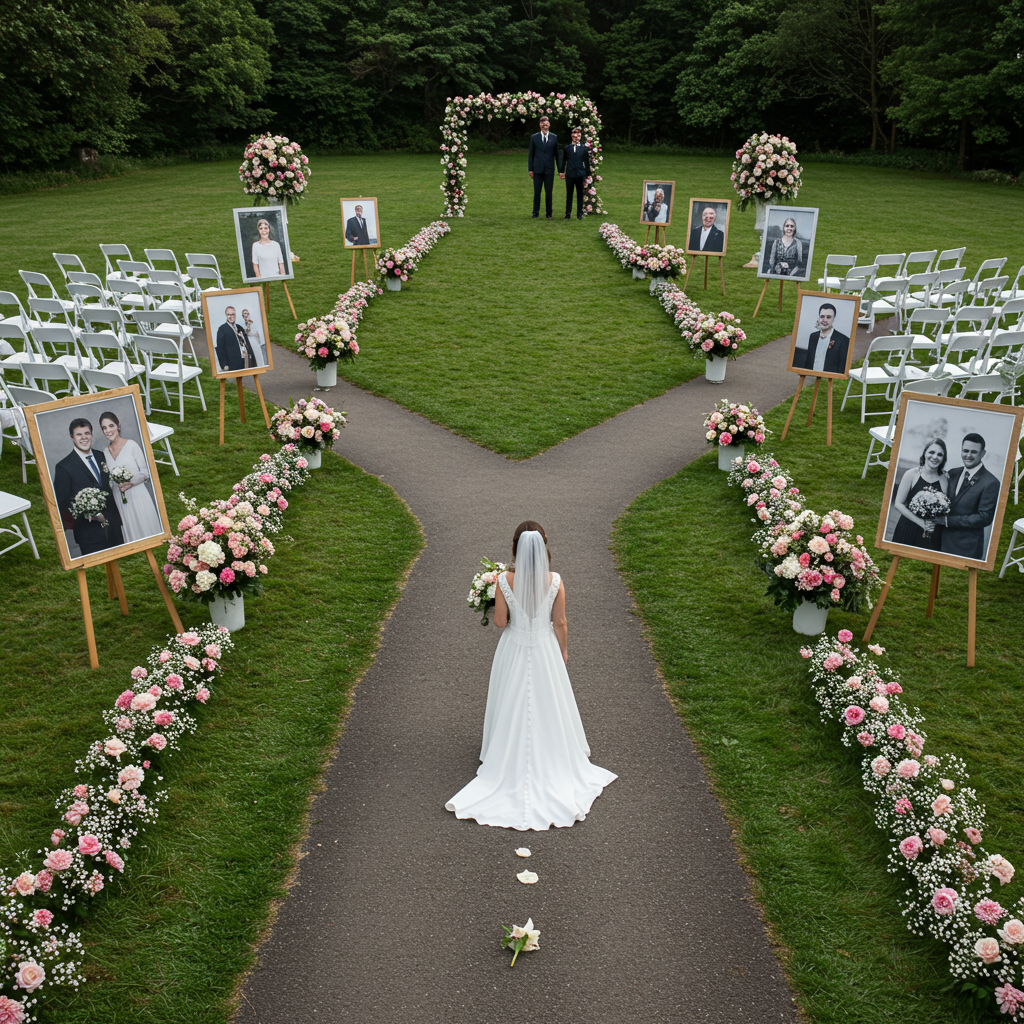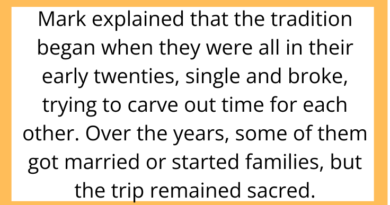AITAH for Not Inviting My Sister to My Wedding Because She Always Tries to Upstage Me?
Weddings are supposed to be a celebration of love and commitment, but for some families, they can also become the stage for long-simmering rivalries. In this AITAH scenario, we’re diving into one bride’s controversial decision to cross her own sister off the guest list—and whether that makes her a heartless villain or someone finally standing up for herself.
The Situation: A Lifetime of One-Upmanship

The poster—let’s call her Emily—is a 28-year-old bride-to-be who has always had a complicated relationship with her older sister, Sarah. According to Emily, Sarah has a history of turning every milestone in her life into a competition.
When Emily graduated college, Sarah announced her engagement at the party. When Emily bought her first home, Sarah showed up with news of her pregnancy. Every time Emily had a moment to shine, Sarah would find a way to redirect the spotlight.
So when Emily started planning her wedding, she made a decision she knew would be controversial: she wasn’t inviting Sarah.
Drawing the Line: The Unsent Invitation

Emily explained that she’d always dreamed of a peaceful, joyful wedding day free from drama. She worried that if Sarah attended, she would either:
-
Announce a second pregnancy.
-
Show up in a white dress (she’d done it before at a cousin’s wedding).
-
Make passive-aggressive comments that would ruin Emily’s mood.
Instead of confronting her sister about these concerns, Emily decided it was better to leave her out altogether. She sent an invitation to her parents, her other siblings, and extended family—but none to Sarah.
Predictably, all hell broke loose.
Sarah called Emily in tears, accusing her of cruelty and exclusion. Their parents were furious, saying Emily was destroying the family. Even Emily’s fiancé thought it was harsh, though he admitted he understood her reasoning.
So Emily asked the internet: Am I the villain for refusing to invite my own sister to my wedding?
The Case for Emily: Protecting Her Peace

Weddings Are About the Couple
Weddings cost thousands of dollars and months (sometimes years) of planning. They should be about the couple, not about family drama. Emily had seen the pattern enough times to know Sarah’s behavior wasn’t likely to change.
Choosing not to invite someone who consistently disrupts major life events is a form of self-care. Emily wasn’t just making a petty decision—she was protecting her mental health and her wedding day.
Past Behavior Predicts Future Behavior
Many commenters on r/AITAH agreed that Sarah’s track record justified Emily’s choice. If someone has proven repeatedly that they can’t respect boundaries, it’s reasonable to stop giving them opportunities to overstep.
The Case for Sarah: Family Over Everything

The Symbolism of Exclusion
On the other hand, some people believe that no matter how difficult a sibling is, weddings are about family coming together. Leaving Sarah off the guest list sent a clear message: You don’t matter enough to be included.
Some commenters argued that Emily should have given Sarah an ultimatum—either behave or be escorted out—instead of banning her altogether.
Damage to Long-Term Relationships
Others pointed out that this decision could have lasting consequences. Even if Emily felt justified, her choice created a rift that might never fully heal. In cultures where family unity is paramount, excluding a sister can be seen as a nuclear option.
Reddit Weighs In: Who’s the Villain?

The AITAH community had strong opinions. The top-voted comment summarized it perfectly:
“You’re not the villain for wanting to enjoy your wedding without theatrics. You are the villain if you never gave her a chance to change.”
Another popular take:
“Your sister sounds exhausting. It’s your day. You get to decide who shares it.”
A few commenters recommended inviting Sarah but setting strict boundaries:
-
Assigning a bridesmaid or coordinator to keep an eye on her.
-
Having a private conversation to explain expectations.
-
Making it clear that any stunts would result in her immediate removal.
What Can Emily Do Now?

Consider Communication Before the Event
Even if the invitation hasn’t been sent, Emily could reach out to Sarah to have an honest discussion. Sometimes calling out the pattern directly is the only way to make someone aware of the impact of their actions.
If she does decide to invite her, clear boundaries and consequences should be laid out in advance.
Rebuild Bridges—On Her Own Terms
If Emily chooses not to invite Sarah, she might still be able to repair the relationship later. A heartfelt conversation after the wedding could help explain her feelings without the heat of the moment driving reactions.
The Bigger Question: Are You Obligated to Include Toxic Family?

This story touches on a dilemma many people face: are you required to include someone in your most important life moments just because you share DNA?
The truth is, no one is entitled to access to your life if their presence consistently hurts you. Weddings are about starting a new chapter—and sometimes that means leaving old dynamics behind.


